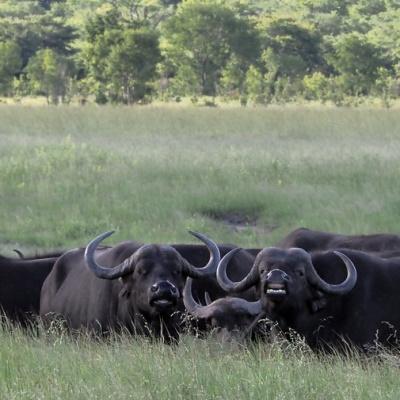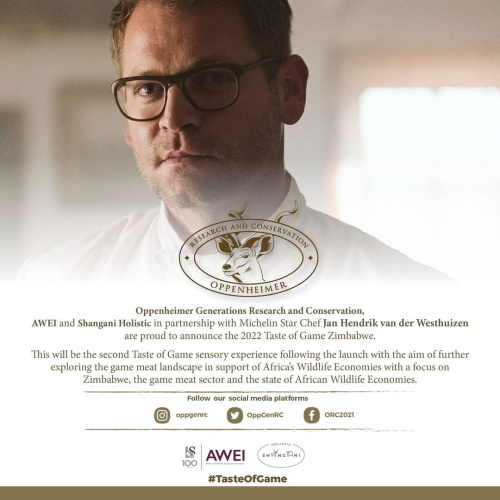
Growing Zimbabwe’s Wild Food Market
Victoria Falls
Zimbabwe
What’s next for Zimbabwe’s wildlife economy?
A series of AWEI Dialogues - Starting in May 2022
In June 2019, the Government of Zimbabwe, along with the African Union and the United Nations Environment Programme, hosted Africa’s Wildlife Economy Summit at Victoria Falls. The Summit Report noted that it had “aimed at advancing political and community leadership, private sector know-how and financial resources for a new vision of pan-African conservation that delivers sustainable economic benefits to national governments and local communities.”
At the Summit, there was also a Voices of the Communities Declaration – “Reset the agenda for community based natural resources management to… turn wildlife into a rural economic engine.” The Declaration proposed that governments “recognize community rights over the ownership, management and use of resources.” What are the prospects for empowering communities and other landowners to own wildlife and to manage it for inclusive economic growth?
Three years on, what is the vision for Zimbabwe’s wildlife economy? How will key stakeholders – public, private, and community – be empowered and engaged? How will the wildlife economy deliver sustainable economic benefits and contribute to the country`s Gross Domestic Product? The Government of Zimbabwe is currently finalising a new report on the country's biodiversity economy that will address such questions It is scheduled to be released later in 2022.
In support of this process, the African Wildlife Economy Institute (AWEI) in partnership with Oppenheimer Generations Research and Conservation (OGRC) is holding a series of Dialogues starting in May 2022 to explore opportunities for turning Zimbabwe’s wildlife economy into a key sector for sustainable and inclusive economic growth.
Growing Zimbabwe’s Wild Food Market
Wed 25 May – 15:00-16:30 CAT
In-person event - video available below
A recent FAO report on biodiversity and food, noted the importance of wild foods “for food security, nutrition and health, sustainable food and agriculture, and poverty reduction and livelihoods.” What opportunities are there for wild foods in Zimbabwe’s wildlife economy?
The report also proposes that we “improve… landscape structure, and connectivity… to provide habitats for associated biodiversity and wild food species.” What are the opportunities for enhancing landscapes by managing them for wild food? Could the promotion of wild foods be a win-win for biodiversity conservation and economic development?
Kennedy Dzama (Chair)
AWEI Chair
Vice-Dean of the Faculty of AgriSciences
Stellenbosch University
Gus Le Breton
CEO
African Plant Hunter
(LinkedIn profile)
Max Makuvise
Resident Director
Shangani Holistic
(LinkedIn profile)
Chanda Mwale
Operations Manager
Wildlife Producers' Association of Zambia
(LinkedIn profile)
Following the Dialogue was the second Taste of Game dinner hosted by AWEI's partner, Oppenheimer Generations Research and Conservation.

Click here for more info on the series:
What’s next for Zimbabwe’s wildlife economy?
Get updates by email
Through impactful research, stakeholder engagement, and professional development, AWEI is supporting the wildlife economy across Africa. Please subscribe for occasional updates on our work and forthcoming events.
Sign up for a quarterly dose of AWEI insights
In a complex and changing world, AWEI generates strategic ideas, conducts independent analysis on wildlife economies, and collaborates with global scholar-practitioners to provide training and expertise for biodiversity conservation, climate resilience, and inclusive economic opportunities in Africa.
